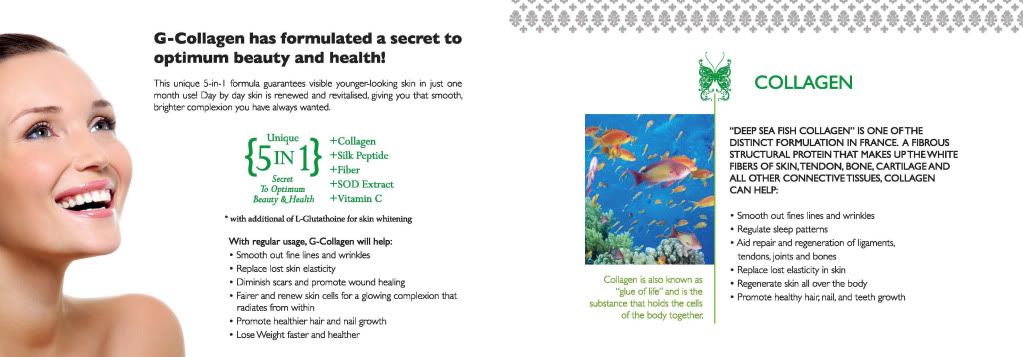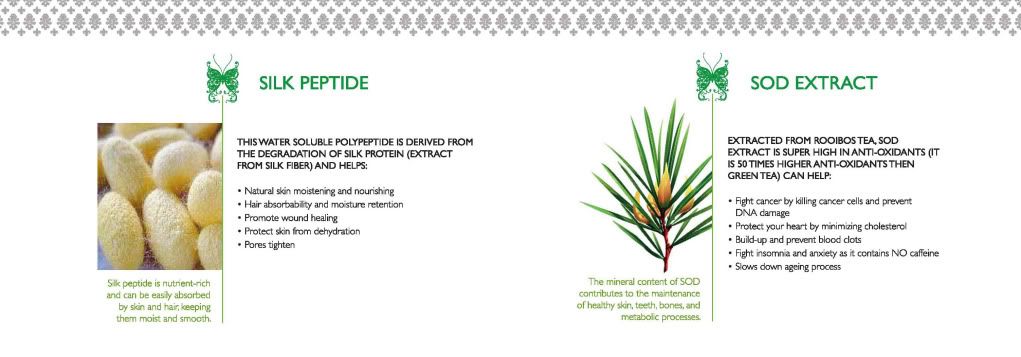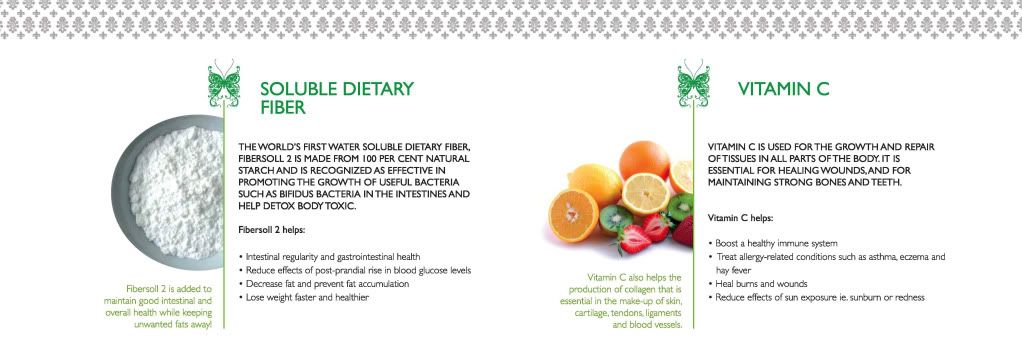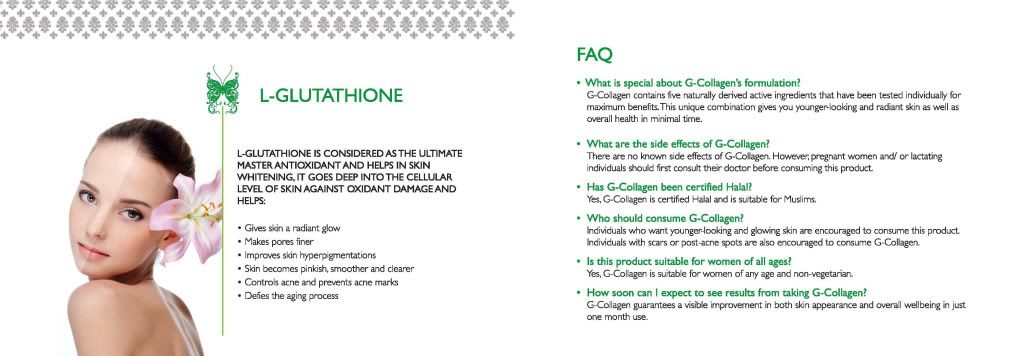ENGLISH BOOKLET












What is COLLAGEN?
Collagen is the fibrous structural protein that makes up the white fibers (collagenous fibers) of skin, tendon, bone, cartilage, and all other connective tissues.
It is also found dispersed in gels of the body to provide stiffening, such as in the vitreous humor of the eye. In other words, collagen is the natural protein that composes most of the body’s structural support and is the primary substance of connective tissue. It is the fibrous connective tissue that holds our body together. Collagen is present in all multi-cellular organisms.
Collagen gives the different organs and tissues their strength and elastic properties. Twenty-five percent of the dry protein weight of the human body is collagen. Seventy-five percent of our skin is made of it, and in total – some thirty percent of our entire body is collagen.
Collagen is part of the natural make-up of tendons, ligaments, joints, muscles, hair, skin, and vital organs. When the body’s essential supply of collagen is reduced, the body is affected. Weakness, fatigue, aches, pains, and an overall lack of performance are frequent symptoms of the problem – symptoms that only increase as we get older.
Besides its many structural properties, collagen serves as the major catalyst for growth and repair of nearly all the body’s tissues. Many different aging diseases are related to the body’s supply of this vital protein and to disorders in the collagen itself. When our body’s collagen production is out of stock, so are we!
Collagen possesses the following benefits:
The body produces essential collagen every day. Collagen accounts for 90% of the skin's volume. Every night, in the first 90 minutes of sleep, the body normally creates collagen to be used in the repair process. From about the age of 25 onwards, collagen diminishes in our bodies at a rate of about 1.5% a year. Once this starts to happen, signs of ageing begin to appear such as wrinkles and aches and pains, both an indication of collagen loss or deficiency.
With its many positive attributes, SOD is a great choice of drink for health conscious people. SOD contains no colors, additives or preservatives, making it a natural beverage. SOD is a great thirst quencher and is an excellent beverage for active people, including children.
Cancer development is a multi-step process. Damage cellular DNA is likely to be a major cause of cancer and other chronic diseases. SOD has been shown to prevent DNA damage.
SOD Extract is super high in anti-oxidants - SOD contains a number of powerful flavanoids and enzymes with antioxidant powers! These natural plant chemicals not only shield the body from cancer, they actually kill cancer cells outright!
SOD protects the heart!
The anti-oxidants in SOD protect your heart since they minimize cholesterol build-up and prevent blood clots. It is reported that four cups of tea can lower your risk of heart disease by as much as 69%!
SOD fights insomnia and anxiety!
Caffeine can be harmful to the central nervous system, causing irritability, high blood pressure and erratic sleep patterns. Sixty percent of tea drinkers experience insomnia and anxiety because of the high caffeine intake when they drink too much regular tea. SOD contains practically NO caffeine (less than 1 mg of caffeine per cup). Even decaffeinated green tea contains 30 mg caffeine per cup!
SOD fights the aging process!
Free radicals are toxic compounds produced in our bodies during normal cell function. These free radicals attack healthy cells and contribute to aging and the decline of the immune system. Recently, Japanese scientists have found that SOD contains a mimic of the enzyme Super Oxide Dismutase (S.O.D.), an antioxidant which attacks the free radicals and limits their damaging effects.
You will feel more energized when you switch from regular to SOD!
The tannin-content of SOD is as low as 1/10 of normal tea. Tannins in regular teas can strip you of up to one third of your diet’s iron - which can leave you with chronic fatigue.
SOD contains no oxalic acid:
People suffering from kidney stones can therefore freely drink SOD.
SOD contains essential minerals:
The mineral content of SOD contributes to the maintenance of healthy skin, teeth, bones, and metabolic processes. Various studies carried out by several South African universities showed that SOD contains a significant quantity of minerals (calcium, potassium, magnesium, manganese, copper, iron, and zinc, as well as trace amounts of the electrolyte, sodium, and natural fluoride), vitamin C, and alpha-hydroxy acid which promotes healthy skin.
What is SILK PEPTIDE??
Definition of the product
The product is water soluble polypeptide formed by degradation of silk protein (fibroin) with average molecular weight between 500-10000, white powder and good water solubility, with pH value between 4.5 to 6.5 and positive ninhydrin reaction.
The hair will be dry, spliting, easy to break and drop if losing some moisture. There are many hydrophilic genes, such as -OH, -COOH, -NH2, >NH, on the surface of the solid construct of its molecule. This structure shows that the silk peptide can allocate wet gene equally, and has good action of keeping hair moist and smooth.
What is SOLUBLE DIETARY FIBER?
Our dietary fiber, namely Fibersoll 2 is the world's first water soluble dietary fiber made from 100% natural starch. Besides low calories, it has important functions for the maintenance of physical conditions, and is recognized as effective in promoting the growth of useful bacteria such as bifidus bacteria in the intestines.
US FDA-GRAS Ingredient made from natural corn starch for tasty functional foods
Minimum 90% dietary fiber by AOAC Official Method 2001.03
Color : Off-white powder; clear, transparent in 10% solution; resists both enzymatic and non-enzymatic browning
Flavor : No flavor, clean
Solubility : Water soluble
Dispersibility : Excellent
Hygroscopicity : Very low
Stability : Acid, heat/retort processing, and freeze/thaw stable
Viscosity : Very low; 15 cps, 30% solution at 30° C
Sweetness : Low, no sweetness (10% of sucrose)
PH : 4 - 6 in 10% solution
Caloric value : Estimated as 1.6 kcal / gram
Excellent physiological benefits
Improves body/texture
Slow fermentation
Intestinal Regularity And Gastrointestinal Health
Improve microflora in large intestine, especially Bifidobacterium and lactobacilli
Increase fecal frequencies.
Increase focal volume.
Prevents intestinal mucosal atrophy due to the long-term administration of enteral nutrition.
Effects on Blood Glucose Levels
Reducing effects of post-prandial rise in blood glucose levels
Fibersoll 2 is a moderately sweet polysaccharide used as a food additive, unrelated to barley malt. It is produced from corn starch and is usually found as a creamy white hygroscopic powder. Fibersoll 2 is easily digestible, being absorbed as rapidly as glucose. Corn-based Fibersoll 2 is safe for patients with celiac disease since they do not contain proteins from wheat, barley, oats or rye.
The Science And Nutritional Efficacy Behind Our Digestion Resistant Maltodextrin
Our digestion resistant Fibersoll 2 is produced by a proprietary process to purposefully rearrange cornstarch molecules to convert a portion of normal alpha-1,4- glucose linkages to random 1,2-, 1,3- and 1,4- alpha and beta linkages.
The human digestive system effectively digests only alpha -1,4- linkages. Therefore, other linkages created are resistant to digestion, so they are not absorbed in the small intestine (approximately 10% absorbed in small intestine) and are passed on to the large intestine. Our digestion resistant Fibersoll 2 is partially fermented in the large intestine (approximately 50% fermented in the large intestine). The fractions that aren’t used are excreted (approximately 40% excretion). Its pre-biotic effect on good intestinal health helps maintain healthful serum cholesterol, serum triglycerides, blood glucose levels, regular laxation, and levels of intestinal microflora.
As a water-soluble fiber, our digestion resistant Fibersoll 2 can effectively promote the growth of a variety of beneficial bacteria (naturally occurring or ingested as pro-biotics) in the colon. In promoting the growth of beneficial bacteria, our digestion resistant Fibersoll 2 indirectly reduces the presence of undesirable bacterial species.
Additionally, secondary and tertiary nutritional benefits from fermentation byproducts such as short chain fatty acids (eg : butyric, acetic, propionic, and valeric acids) can add to maintaining good intestinal and overall health.
Short-chain fatty acids are used by the intestinal mucosa or absorbed through the colonic wall for portal circulation (supplying the liver) that transports them into the general circulation.
Overall, fermentable fibers yield the important short-chain fatty acids that affect blood glucose and lipid levels, improve the colonic environment and regulate immune responses.
What is VITAMIN C?
Vitamin C is a water-soluble vitamin, meaning that your body doesn't store it. We get what we need, instead, from food. You need vitamin C for the growth and repair of tissues in all parts of your body. It helps the body make collagen, an important protein used to make skin, cartilage, tendons, ligaments, and blood vessels. Vitamin C is essential for healing wounds, and for repairing and maintaining bones and teeth.
Vitamin C is an antioxidant, along with vitamin E, beta-carotene, and many other plant-based nutrients. Antioxidants block some of the damage caused by free radicals, which occur naturally when our bodies transform food into energy. The build-up of free radicals over time may be largely responsible for the aging process and can contribute to the development of health conditions such as cancer, heart disease, and arthritis.
Evidence suggests that many people may be mildly deficient in vitamin C, although serious deficiencies are rare in industrialized countries. Smoking cigarettes lowers the amount of vitamin C in the body, so smokers are at a higher risk of deficiency. Signs of vitamin deficiency include dry and splitting hair; gingivitis (inflammation of the gums) and bleeding gums; rough, dry, scaly skin; decreased wound-healing rate, easy bruising; nosebleeds; and a decreased ability to ward off infection. A severe form of vitamin C deficiency is known as scurvy.
Low levels of vitamin C have been associated with a number of conditions, including high blood pressure, gallbladder disease, stroke, some cancers, and atherosclerosis (the build-up plaque in blood vessels that can lead to heart attack and stroke). Getting enough vitamin C from your diet (by eating lots of fruit and vegetables) may help reduce the risk of developing some of these conditions. The evidence that taking vitamin C supplements will help or prevent any of these conditions is lacking, however.
Vitamin C plays a role in protecting against the following:
High Blood Pressure
Common Cold
Cancer
Osteoarthritis
Age-related Macular Degeneration
Pre-eclampsia
Asthma
Although the information is limited, studies suggest that vitamin C may also be helpful for:
Improving vision for those with uveitis (an inflammation of the middle part of the eye)
Treating allergy-related conditions, such as asthma, eczema, and hay fever (called allergic rhinitis)
Reducing effects of sun exposure, such as sunburn or redness (called erythema)
Alleviating dry mouth, particularly from antidepressant medications (a common side effect from these drugs)
Healing burns and wounds
Decreasing blood sugar in people with diabetes
HONEYDEW is a member of the melon family; it is the sweetest of all melons when ripe. Honeydew is a popular fruit not just because of its delicious delicately sweet taste but also because of its many health benefits. The edible portion is an excellent source of Vitamin C, provitamin A and potassium, zinc, and valuable digestive enzymes. They are fairly low in carbohydrates but since it is big you can usually get enough of your recommended daily requirement.
Honeydew is harvested based on maturity, not size. The maturity of this fruit is somewhat hard to determine, the simplest way to known if its mature already is its ground color ranging from greenish white (immature) to creamy yellow (mature).
Great source of folic acid for women of childbearing age because it is known to prevent birth defects.
Contain plenty of water which keeps us hydrated.
MANGO “The king of the fruits”, mango fruit is one of the most popul, nutritionally rich fruit with unique flavor, fragrance, taste, and heath promoting qualities making it a common ingredient in new functional foods often called “super fruits”.
Mango is one of the delicious tropical seasonal fruit and believed to be originated in the sub-Himalayan plains of Indian subcontinent.
Each fruit measures 5 to 15 cm in length and about 4 to 10 cm in width, and has typical “mango” shape, or sometimes oval or round. Its weight ranges from 150 gm to around 750 gm. Outer skin is smooth and is green in un-ripe mangoes but turns into golden yellow, bright yellow or orange-red when ripen depending on the cultivar.
Internally, juicy flesh has orange-yellow in color with numerous soft fibrils radiating from the husk (enveloping a single large kidney-shaped seed). Flavor is pleasant and rich, and tastes sweet with mild tartness. A high quality mango fruit should feature no or very less fiber content and minimal sour taste. Mango seed may either has a single embryo, or sometimes polyembryonic.
Health Benefits
Mango fruit is rich in pre-biotic dietary fiber, vitamins, minerals and poly-phenolic flavonoid antioxidant compounds.
According to new research study, mango fruit has been found to protect against colon, breast, leukemia and prostate cancers. Several trial studies suggest that polyphenolic anti-oxidant compounds in mango are known to offer protection against breast and colon cancers.
Mango fruit is an excellent source of Vitamin-A and flavonoids like beta-carotene, alpha-carotene, and beta-cryptoxanthin. 100 g of fresh fruit provides 765 mg or 25% of recommended daily levels of vitamin A. Together; these compounds are known to have antioxidant properties and are essential for vision. Vitamin A is also required for maintaining healthy mucus membranes and skin. Consumption of natural fruits rich in carotenes is known to protect body from lung and oral cavity cancers.
Fresh mango is a very rich source of potassium. Potassium in an important component of cell and body fluids that helps controlling heart rate and blood pressure.
It is also a very good source of vitamin-B6 (pyridoxine), vitamin-C and vitamin-E. Consumption of foods rich in vitamin C helps body develop resistance against infectious agents and scavenge harmful oxygen free radicals. Vitamin B-6 or pyridoxine is required for GABA hormone production in the brain. It also controls homocystiene levels in the blood, which may otherwise be harmful to blood vessels resulting in CAD and stroke.
Pinapples are used to help cure bronquitis and throat infections. It is efficient in the treatment of arterioscleroses and anaemia. Pineapple is an excellent cerebral toner; it combats loss of memory, sadness and melancholy.
· Copper is a co-factor for many vital enzymes, including cytochrome c-oxidase and superoxide dismutase (other minerals function as co-factors for this enzyme are manganese and zinc). Copper is also required for the production of red blood cells.
PINEAPPLE's nutrients include calcium, potassium, fiber and vitamin C. It is low in fat and cholesterol. Vitamin c is the body's primary water soluble antioxidant, against free radicals that attack and damage normal cells. It is also a good source of vitamin B1, vitamin B6, copper and dietary fiber.
Cancer development is a multi-step process. Damage cellular DNA is likely to be a major cause of cancer and other chronic diseases. SOD has been shown to prevent DNA damage.
SOD Extract is super high in anti-oxidants - SOD contains a number of powerful flavanoids and enzymes with antioxidant powers! These natural plant chemicals not only shield the body from cancer, they actually kill cancer cells outright!
v SOD protects the heart!
The anti-oxidants in SOD protect your heart since they minimize cholesterol build-up and prevent blood clots. It is reported that four cups of tea can lower your risk of heart disease by as much as 69%!
v SOD fights insomnia and anxiety!
Caffeine can be harmful to the central nervous system, causing irritability, high blood pressure and erratic sleep patterns. Sixty percent of tea drinkers experience insomnia and anxiety because of the high caffeine intake when they drink too much regular tea. SOD contains practically NO caffeine (less than 1 mg of caffeine per cup). Even decaffeinated green tea contains 30 mg caffeine per cup!